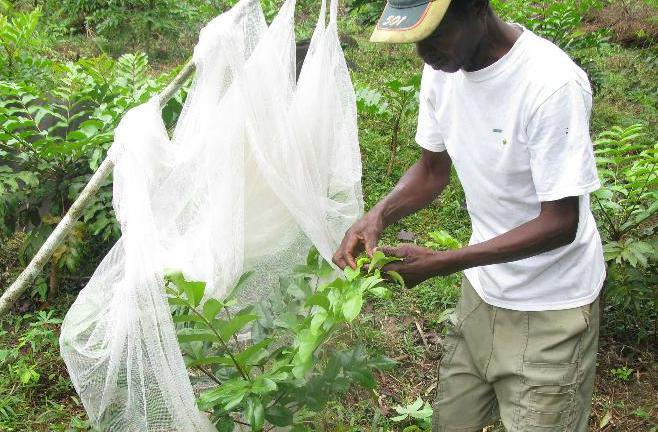Catherine Craig
Other projects
28 Feb 2008
Wild Silk Production to Alleviate Poverty and Preserve the Biodiversity of the Makira Protected Area, Madagascar
19 May 2011
Scaling-Up and Monitoring the Ecological and Economic Impacts of the CPALI Wild Silk Project
The goal of this project is to provide a lasting economic alternative to slash and burn agriculture that invests farmers in maintaining the border forests that edge important conservation sites.

Project Need
Madagascar is facing an urgent environmental and economic crisis. Located off the southeast coast of Africa, the island is home to some 5 percent of the earth's animal and plant species, including some 9,000 plants found nowhere else in the world. Madagascar is also one of the 20 poorest countries in the world. Seventy percent of population lives on less than $2 a day. In their struggle to survive, the Malagasy people are destroying their unique biological heritage. Less than 10% of the original forest remains. Conservation and poverty alleviation must go hand in hand in order to save Madagascar’s valuable ecosystems from destructive farming practices, hunting, and logging.
Working Towards a Solution
To save the forests, conservation agencies have moved farmers from protected areas. Unfortunately, when rural Malagasy poor are displaced from these areas, they lose access to resources which provided their only cash income (charcoal). Some conservation organizations award farmers compensatory subsidies, but such approaches are not sustainable and they stifle farmer independence. As a result, newly protected areas are frequently vulnerable to looting and abuse. It is clear that we need to rapidly find a better solution that is supported by local communities. The local farmers must find a way to support their families that does not destroy Madagascar’s precious and unique ecosystems.
CPALI is introducing a new solution: train farmers to produce wild silk and train local artisans to make non-spun, wild silk textiles. Silk from native moths is a new source of cash income and, as shown by our test plots, its cultivation will maintain healthy ecosystems, restore degraded habitats and allow farmers and their families to take financial responsibility for their future. Every stage of the CPALI wild silk project, from farmer to finished product, provides jobs and independent businesses which support the restoration of degraded forests and conservation of the primal habitats that seed them. We are working in collaboration with the Wildlife Conservation Society who will monitor the effects of our project on the farmlands and border forests that edge the Makira Protected Area.